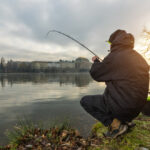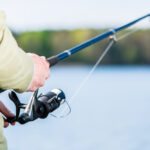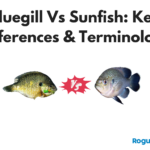Bass fishing is one of the most popular forms of fishing in the USA. Every year, millions of Americans head out to try and catch different bass species, especially largemouth bass. Although this carnivorous freshwater fish is prevalent, few people decide to eat them. That leaves the question; are largemouth bass fish good to eat? We will answer this question along with a whole host of other interesting facts on the largemouth bass fish.
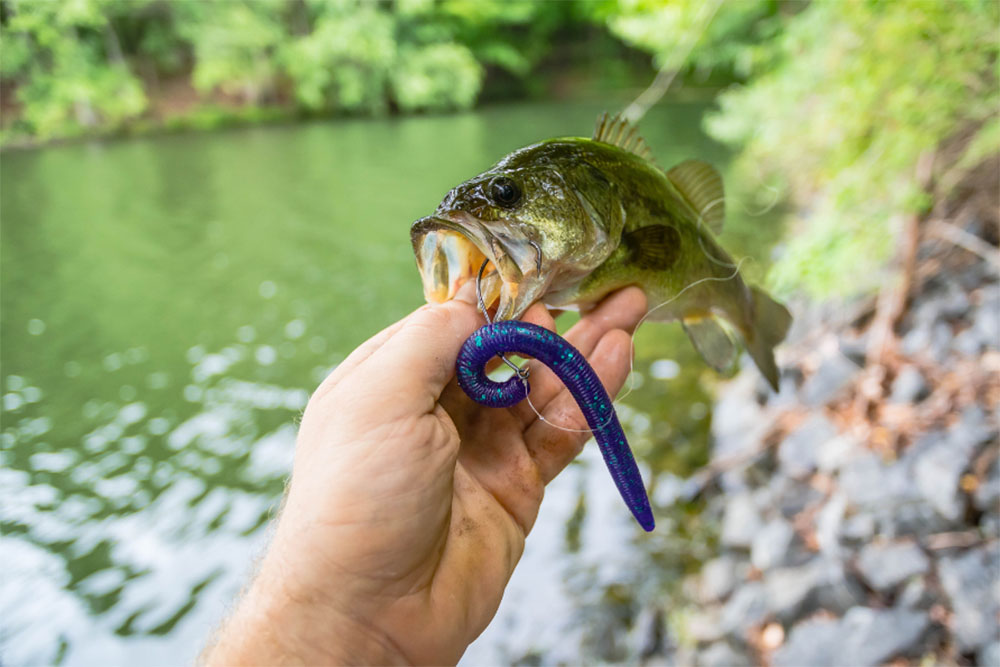
If you want a quick and sharp answer, then it is yes. You can eat largemouth bass, and these fish can be delicious. But that leaves another question. If you can eat these black bass fish, why don’t many anglers do so?
We will find out why and the best ways to eat largemouth bass below.
Are largemouth bass good to eat?
Largemouth bass can be eaten, but they are not typically the tastiest freshwater fish. The more popular fish on people’s dishes are salmon (see the best salmon and steelhead fishing rods here), trout, walleye, and many more.
One of the reasons largemouth bass may have a less delicious taste is the environment in which they live. These fish tend to live in stagnant ponds or rivers, leaving them with a muddier, duller taste that is not to everyone’s liking. Ask most anglers, and they’ll tell you that catching largemouth bass is far more fun than actually eating one.
Most anglers tend to release their largemouth bass after catching it instead of taking it home for supper. Many people believe largemouth bass fish are unsuitable for you, but this isn’t true. The largemouth bass is safe and healthy to consume, and some individuals regularly eat it.
Most anglers don’t like to try largemouth bass because of its reputation for not being very tasty. Of course, the taste can change from one person to the next, but in the case of largemouth bass, most agree that it has an unpleasant flavor.
Largemouth bass that is caught in stagnant waters usually has a muddy flavor that overpowers most recipes. Better tasting bass usually comes from cleaner waters such as large, clear lakes and unpolluted rivers. If you catch bass in a drainage canal or a polluted pond, you should never eat it.
The best way to describe the taste of largemouth bass is by comparing it to the water’s scent in which it was caught. Therefore, those caught in areas with an unpleasant smell will most likely have an undesirable taste. If you want to try largemouth bass, try and catch one in an odorless and clear pond or river.
If you’re wondering when the best time to eat largemouth bass is, we recommend trying it in the early or late season.
During the summer months, algal bloom forms on the water, resulting in a discolored scum on the surface, significantly affecting bass fish’s taste. The cooler winter months tend to leave lakes and ponds with cleaner water, so the largemouth bass’ flavor won’t be as intense.
Overall, you should check the pollution level in the waters you fish in, whatever the fish you are fishing, to ensure what you catch is safe to eat.
What does largemouth bass taste like?
When catching largemouth bass, the taste depends on the waters you catch it in. Those found in clean lakes tend to have a milder and more pleasant flavor, similar to bluegill. The flesh becomes flaky, white, and tender if cooked correctly.
You will not like the taste if you go to the dark side and eat a bass out of unclean and murky waters. Factors such as the algal bloom in the summer months leave the fish tasting awful with a muddy flavor.
Unfortunately, when gutted, largemouth bass comes equipped with an unpleasant and pungent smell. This smell that rises from the body cavity usually puts people off the fish before thinking about eating it. However, this smell can disappear with extensive rinsing, and after it has been cooked, the scent should cease to exist.
Most of the time, the fish’s taste can come down to three factors: where the bass came from, the fish’s size, and how the bass was cooked. A skillful cook may make a bad-tasting bass into a delicious meal.
What is the best way to cook largemouth bass?
One reason many people don’t like the taste of largemouth bass may be down to the preparation of the fish. There are many ways to cook this fish, most fishing charters will help you filet them, and some methods are tastier than others.
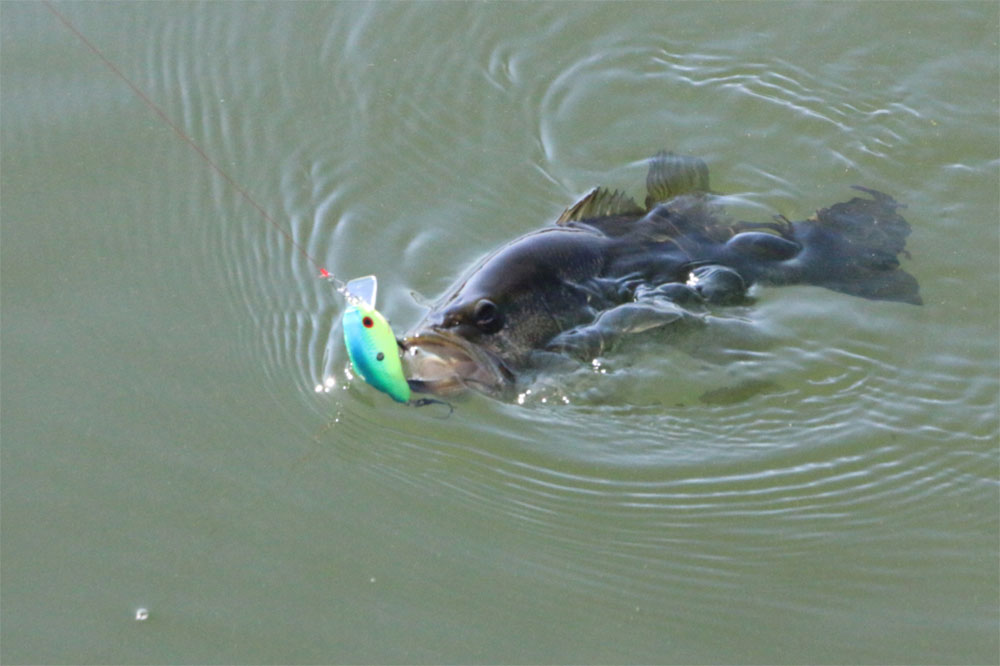
The best and most recommended method of cooking largemouth bass is by fileting them, followed by either deep-frying, pan-frying, grilling, or baking the fish.
Interested in how to cook largemouth bass for yourself. Here is how to fry one:
- Make season flour by getting a bowl of plain flour. Throw in the spices you prefer, but some recommended ones include pepper, garlic powder, onion, salt, and a dash of cayenne powder.
- Season the flour to your desired taste
- Grab a reasonably sized frying pan and add some oil (any kind of cooking oil will suffice)
- Crack an egg into a bowl and scramble it
- Dunk the fileted largemouth bass pieces into the egg to become coated
- Now coat the fish pieces in flour.
- Once the oil is heated up, fry each side of the fish for a couple of minutes until it is crispy and golden.
- Place the fish onto paper towels to soak up oil to prevent the fish from becoming soggy.
Besides flour, the white filets of the largemouth bass can be covered with milk or breadcrumb batter before being fried.
Another way of cooking largemouth bass is by baking it in aluminum foil. Simply add some seasoning, lemon juice, and crushed garlic before leaving them to stew in the juices until the bass begins to flake. This is one of the tastiest methods!
What size should a largemouth bass be to eat it?
It is advised that the best size largemouth bass to eat should be around 10 – 14-inches and no longer than 15-inches. As with most fish species, younger largemouth bass has a better flavor and more tender meat.
Older bass tends to have more toxins in their bodies and a much tougher meat texture.
A smaller bass is easier to cook too. It can be challenging to cook larger-sized fish thoroughly as the edges can become burnt while the insides can be uncooked. Always ensure the whole fish is cooked throughout to prevent possible illness and the chance to be host to parasites or tapeworms. Trust us; you do not want those creatures inside you!
Should you release largemouth bass or eat them?
When bass fishing, especially with the perfect bass fishing line, many anglers like the thrill of catching the fish, which is usually enough for them. It is regarded as “unlawful” to catch and eat their bass for some of these anglers.
The largemouth bass is fished a lot in America, and if anglers decided to kill them more frequently, it could severely impact their population numbers. However, it is acceptable to take home some smaller bass that you catch as long as you don’t take back every single one you catch every time.
Placing the larger-sized bass back is recommended as these tend to be the female breeders that help produce thousands of eggs in the spawning season. Thes larger ones also taste very bad compared to smaller largemouth bass.
As many more fish species are tastier than largemouth bass, taking one home isn’t necessary. Try sticking to perch, trout, or walleye instead and experience a more delicious treat as well as support a whole species’ population.
Eating Largemouth Bass Summary
In short, largemouth bass is good to eat, and it can even be tasty when fished in a clean environment with the right recipe. If you don’t want to leave a bad taste in your mouth, stay away from stagnant and unclean waters, as largemouth fish will taste disgusting.
